They Called Me
King Tiger
My Struggle for the Land and Our Rights
Reies Lpez Tijerina
Translated from the Spanish and edited by Jos Angel Gutirrez
With a Foreword by Henry A. J. Ramos

This volume is made possible through grants from the Rockefeller Foundation and the Charles Stewart Mott Foundation.
Recovering the past, creating the future
Arte Pblico Press
University of Houston
Houston, Texas 77204-2174
Cover design by Ken Bullock
Cover photo and eight-page photo insert courtesy of
Reies Lpez Tijerinas personal collection
Tijerina, Reies Lpez.
[Mi lucha por la tierra. English]
They called me King Tiger: my struggle for the land and our rights / by Reies Lpez Tijerina ; translated from the Spanish and edited by Jos Angel Gutirrez.
p. cm. (The Hispanic civil rights series)
Includes bibliographical references.
ISBN 1-55885-302-2 (alk. paper)
1. Mexican AmericansNew MexicoSocial conditions20th century. 2. Mexican AmericansNew MexicoEconomic conditions20th century. 3. Land tenureNew MexicoHistory 20th century. 4. Tijerina, Reies. 5. Civil rights workersNew MexicoBiography. 6. Mexican AmericansNew Mexico Biography. 7. Civil rights movementsNew MexicoHistory 20th century. 8. New MexicoEthnic relations. I. Gutirrez, Jos Angel. II. Title. III. Series.
F805.M5 T5413 2000 |
978.90046873dc21 | 00-059426 |
 The paper used in this publication meets the requirements of the American National Standard for Information SciencesPermanence of Paper for Printed Library Materials, ANSI Z39.48-1984.
The paper used in this publication meets the requirements of the American National Standard for Information SciencesPermanence of Paper for Printed Library Materials, ANSI Z39.48-1984.
2000 by Reies Lpez Tijerina
Translation 2000 by Jos Angel Gutirrez
Printed in the United States of America
0 1 2 3 4 5 6 7 8 9 10 9 8 7 6 5 4 3 2 1
To the Tijerina children between Reies and Mara Reies Hugh David (deceased), Rosa, Daniel (deceased), Raquel, Ira de Ala, and Noe. And to all other valientes seldom mentioned in the struggle for la tierra: Santiago Anaya, Valentina Valdez, Bobby Lpez, Moiss Morales, Juan Valdez, Flix Martnez, Ventura Chvez, Baltazar Martnez, and the many others still unnamed.
Foreword
They Called Me King Tiger: My Struggle for the Land and Our Rights is the memoir of one of the Chicano Movements most significant and forceful personalities. Reies Lpez Tijerina was a New Mexico-based Pentecostal preacher, who for a decade spanning the late 1950s to the late 1960s, organized Spanish-speaking families across the southwestern U.S. to seek repatriation of lands obtained by North American Anglos in violation of the Treaty of Guadalupe Hidalgo (the 1848 treaty that ended the U.S.-Mexico War). Tijerinas movement, which ultimately consisted of efforts to reclaim disputed properties by force and Tijerinas own indictment and arrest by federal authorities following an armed raid on a New Mexico courthouse that he led, defined important elements of the Chicano Movement. In stark contrast to more conventional community leaders of the day (ranging from conservatives like the American G.I. Forums Dr. Hector P. Garca to progressives like inspirational United Farm Workers principal Csar Chvezleaders who sought reform through extant U.S. governance processes), Tijerina openly defied federal and state authorities, and advocated radical change in U.S. policy and governance.
In effect, Reies Lpez Tijerina was the Malcolm X of the Chicano community. He both frightened and enraged Anglo Americans, as well as more conservative Mexican Americans. As a youth, I vividly remember my father, a conservative Latino World War II veteran and businessman, commenting on Tijerina. To my father and many others of his generation, Tijerina was someone to be disdained. He was unAmerican. He was an extremist. He was violent.
To be sure, Tijerina was the nations most controversial Mexican American in an era of controversy. More than any other individual of his times, he stood as an unedited commentator on the Chicano communitys plight in U.S. society. Always charismatic, but at times venal and racist, Tijerina was unafraid to think the unthinkable, to say the unspeakable. He challenged the American legal and political system as no Chicano leader before him or since has. He defied all the rules.
Largely for these reasons, Tijerina remains controversial still today among those who remember him. But thirty years following his heyday, in an era marked by political lethargy, Tijerina has been mainly forgotten. Few younger U.S. Latinos born in the years following the 1960s recognize the name Tijerina; and U.S. history books, so inclined to overlook the experiences of Spanish-speaking peoples in American culture, never have found a comfortable way to acknowledge his story.
But Tijerinas story is an important one, however uncomfortable it may be to many, even most contemporary observers. Notwithstanding lingering questions about Tijerinas judgment, his strategies, and even his sanity, it cannot be denied that Reies Lpez Tijerina led one of the most significant movements on behalf of modern Chicano civil rights that our nation has seen. In waging his war for the land, Tijerina inspired countless community and youth leaders of the era to take up the cause of organized resistance. Although the movements more confrontational elements were appropriately quelled, the engagement and passion of unprecedented numbers of Chicano community members (and especially youth) around Tijerinas struggles played an important role in galvanizing a new consciousness among the Latino people of the U.S. This new consciousness ultimately reinforced the efforts of Latino civil rights leaders and groups of the 1960s to push successfully for the broader recognition and inclusion of Spanish-speaking people and issues in American policy making.
Because of his significant contributions to community organizing and empowerment efforts of Chicano/Latino groups of the 1960s, Arte Pblico Press offers Tijerinas memoir (ably translated from its original Spanish text and condensed by fellow 60s activist Jos Angel Gutirrez) as a seminal entry in its Civil Rights Book Series. This series, supported by leading U.S. funding institutions, such as the Charles Stewart Mott Foundation and The Rockefeller Foundation, seeks to expand national understanding and appreciation of the significant struggles and contributions of post-World War II Latinos in American civic culture. By elevating attention to Latino community issues, leaders, and institutions that have shaped contemporary American realities, the series is intended to enhance popular recognition of the national Latino communitys essential place in modern American society and history.
They Called Me King Tiger: My Struggle for the Land and Our Rights is Reies Lpez Tijerinas personal account of one of Latino Americas most dramatic modern claims to recognition, recompense, and self-determination. It stands as an important chronicle of the 1960s Chicano Movement and will inspire, even today, much provocation for thought and debate on the meaning of being American at the outset of the 21st century.
Henry A. J. Ramos
Executive Editor
Arte Pblico Press Latino Civil Rights Book Series
Introduction
Reies Lopez Tijerina, one of the principal leaders of the Chicano Movement of the 1960s, began keeping a diary of events in 1974. He wanted to write about his twenty-year struggle for the land, from 1956 to 1976. He would turn fifty years of age in 1976 and wanted to leave a memoir of his efforts. He used these diary entries to write his autobiography. According to Tijerina, with the help of Gregorio Casuals, Jos Antonio, and Vernica Alvarez, he made contact with the publishing house Fondo de Cultura Econmica in Mexico, and they expressed an interest in his manuscript. On January 28, 1978, the Fondo de Cultura Econmica published Tijerinas 575-page autobiography in Spanish, with a print run of 5,000 copies.


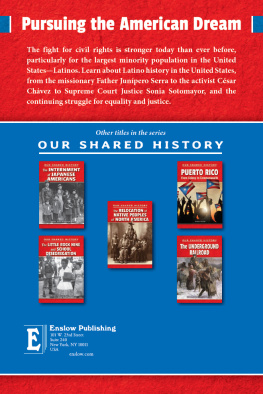
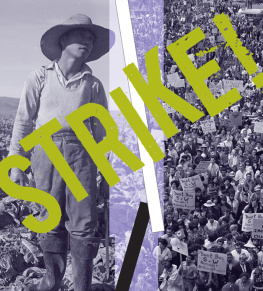
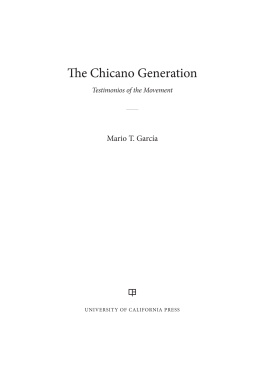
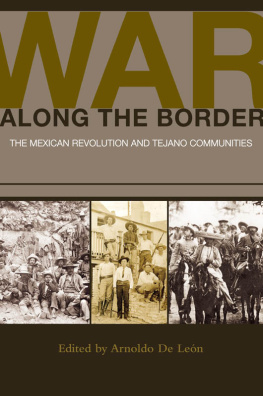

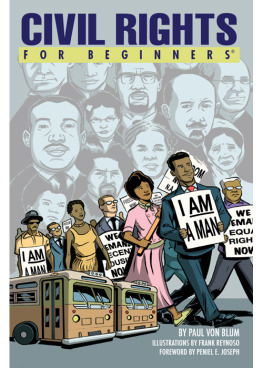





 The paper used in this publication meets the requirements of the American National Standard for Information SciencesPermanence of Paper for Printed Library Materials, ANSI Z39.48-1984.
The paper used in this publication meets the requirements of the American National Standard for Information SciencesPermanence of Paper for Printed Library Materials, ANSI Z39.48-1984.